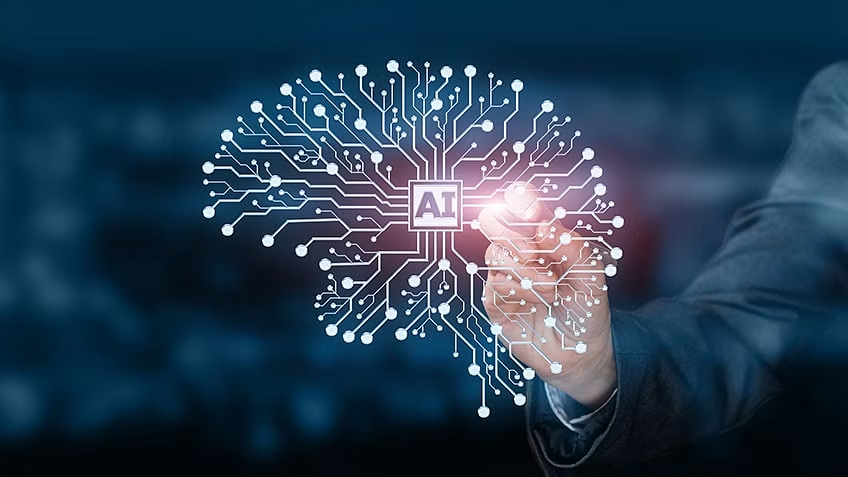APPLICATION OF AI IN MODERN MEDICINE
AI is rapidly changing the landscape of healthcare.
It is being used to diagnose diseases, develop new treatments, and even personalize care plans for individual patients. There are many potential applications of AI in healthcare, and the possibilities are endless.
In this article, we will explore some of the most promising applications of AI in modern medicine and the potential implications of these changes for the future of healthcare.
WHAT IS ARTIFICIAL INTELLIGENCE (AI) AND ITS ROLE IN HEALTHCARE?
AI is a broad term that refers to anything that allows a machine to mimic human intelligence. In the medical field, AI is used to refer to technologies that can help doctors make diagnoses, plan treatments, and even perform surgeries.
There are many potential applications of AI in healthcare. For example, AI could be used to help doctors detect tumors and other abnormalities in medical scans. It could also be used to predict how a patient will respond to a particular medication. AI could even be used to perform surgeries.
BENEFITS AND APPLICATION OF AI IN HEALTHCARE AND MODERN MEDICINE
AI has the potential to revolutionize healthcare by making it more efficient and effective.
There are countless ways that AI can be used in healthcare and modern medicine. It can be used to diagnose diseases, to develop new treatments, to monitor patient health and care.. AI can also be used to improve communication between doctors and patients, and to assist in the training of healthcare professionals.
The benefits of AI in healthcare are enormous. It can help to save lives by diagnosing diseases earlier, it can help to reduce the cost of healthcare, and it can make the process of receiving treatment easier for patients. The applications are endless.
It could go a long way to reduce or eliminate human error as humans are susceptible to fatigue, stress and error.
CHALLENGES POSED BY AI IN HEALTHCARE
You may be wondering what challenges AI presents to modern healthcare. The main concern is that of accuracy. AI-powered systems are only as good as their algorithms, which can only do so much in the face of the complexities of human health.
There is also the problem of privacy and data security; while AI could help streamline clinical operations, there is still no guarantee that your personal data would be kept safe.
Lastly, there are ethical considerations to take into account; if a computer-assisted decision replaced a human doctor’s judgment, who would be responsible for any mistakes it made? These are all issues that must be taken into consideration when exploring AI’s applications in modern medicine.
ETHICAL CONSIDERATIONS FOR HEALTHCARE AI IMPLEMENTATIONS
As consideration is made about the potentials of AI in healthcare, it is important to think about ethical considerations. AI-based algorithms can be used to make decisions that could directly affect a person’s health, and this requires careful thought and consideration.
It is essential to maintain transparency and ensure that those using AI in healthcare understand the system’s underlying processes. Additionally, the implications of AI for vulnerable populations should be taken into account on an ongoing basis. Finally, healthcare organizations should build ethical guardrails into their systems, such as providing an opt-out option or other control mechanisms for individuals who may feel uncomfortable with their data being used by AI-driven health systems.
THE FUTURE OF AI IN THE MEDICAL FIELD
The possibilities of AI applications in modern medicine are staggering. As earlier stated, AI can be used to diagnose diseases, detect potential health problems before they arise, and provide personalized treatments based on an individual’s genetic makeup.
AI can also be used to analyze large datasets to identify correlations between diseases and provide predictive analytics for healthcare systems.
n addition, AI can help reduce the cost of healthcare by automating tedious or dangerous tasks that normally require human labor to perform. The use of robots for surgical procedures is becoming increasingly common, and AI-powered chatbots are starting to be used by some healthcare organizations as a means of interacting with patients.
What does this all mean for the future of AI in healthcare?
It is clear that AI will play an increasingly important role in modern medicine, and that its potential applications are virtually limitless. From diagnostics and treatment to research and patient care, AI has the potential to improve healthcare outcomes and revolutionize the way we approach medicine. While there are some challenges to be overcome, including the need for better data and more sophisticated AI algorithms, the potential benefits of AI are too great to ignore.
With so much at stake, it is essential that we continue to explore the potential of AI and work to realize its full potential in healthcare, with caution of course!









